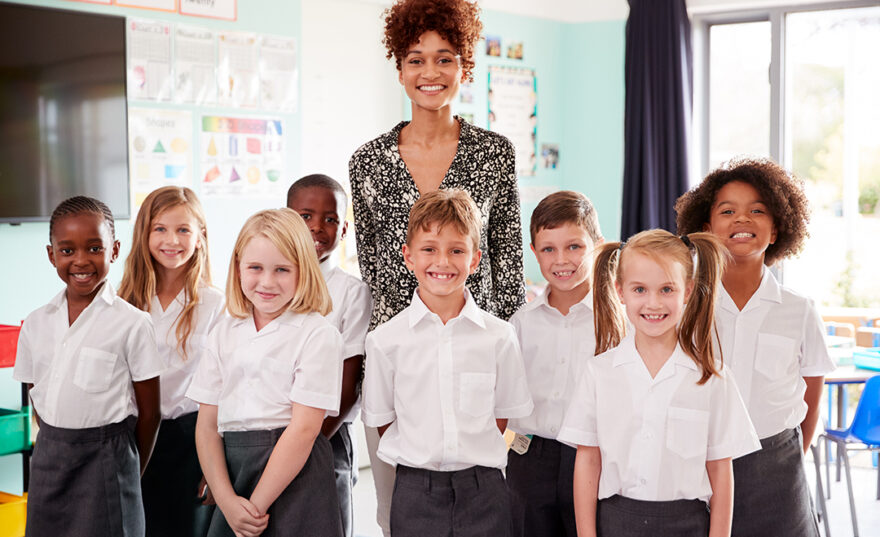This Teacher & Education Professionals Hub brings together the resources on our website that is most relevant, and useful, together with upcoming webinars.
Teacher & Education Professionals Hub


This Teacher & Education Professionals Hub brings together the resources on our website that is most relevant, and useful, together with upcoming webinars.
Ask the Expert sessions exclusively for teachers and education professionals
Pedagogy in Practice sessions exclusively for teachers and education professionals
COVID & the impact on Mental Health of School Closures – CAMHS around the Campfire recording
For this session we welcomed Dr. Karen Mansfield, a postdoctoral research scientist from the School Mental Health Project, Department of Psychiatry at the University of Oxford, to discuss her JCPP Advances paper ‘‘Covid-19 partial school closures and mental health problems: a cross sectional survey of 11,000 adolescents to determine those most at risk’’.
Managing transition for school leaders post lockdown
Short film from charity Nip in the Bud about strategies school staff can use to support children through difficult transitions so that they feel happy, safe and open to learning.
Professor Tamsin Ford CBE – ‘Supporting children’s mental health as schools re-open’
Slides and transcript available. This was a live webinar recorded on Wednesday 8 July 2020 for ACAMH West Midlands Branch.
School behaviour difficulties, school based interventions, and inclusive education – In Conversation with Dr. Alice Jones Bartoli
Dr. Alice Jones Bartoli looks at how well equipped schools and teachers are when it comes to dealing with child and adolescent mental health issues, and what more can be done to support teachers and leaders in creating mentally healthy schools, and in supporting the staff themselves.
The Mental Health Impact of COVID-19 School Closures
The focus of this podcast is on the JCPP Advances paper ‘Covid-19 partial school closures and mental health problems: a cross sectional survey of 11,000 adolescents to determine those most at risk’, written by Dr. Karen Mansfield, Professor Mina Fazel, and colleagues.
‘Creating mentally healthy schools’ – In conversation with Professor Jess Deighton
We are honoured to spend some time talking to Professor Jess Deighton, about the role schools can play in young people’s mental health, about school-based interventions, and some insights from her latest research.
Mental Wellbeing in Schools, and the Global Mental Health Crisis
In this podcast, we talk to Lauren Cross about her research interests around mental health and wellbeing in schools and inequalities during childhood and adolescence, as well as her co-authored CAMH debate paper ‘Is There a True Global Children and Young People’s Mental Health Crisis Fact or Fiction’.
‘Data sets, mental well-being and school-based interventions’ In Conversation with Dr. Praveetha Patalay
In this podcast, Dr. Praveetha Patalay discusses data sets, the difference between mental health and mental health well-being and school-based interventions. Praveetha also talks about her recent JCPP paper on ‘Prescribing measures: unintended negative consequences of mandating standardized mental health measurement’.
Dr. Maria Loades ‘COVID19 and social isolation, school-based interventions, and CBT’ – In Conversation
Dr. Maria Loades discusses Covid19 and its implications for young people’s mental health, the Rapid Systematic Review exploring the repercussions of the pandemic on social isolation and loneliness.
In Conversation… Professor Tasmin Ford the importance of schools in a child’s mental health
Professor Tamsin Ford, Professor of Child and Adolescent Psychiatry, University of Exeter Medical School, talks about attachment and early intervention, and explains why schools are an important setting in relation to child mental health.
How effective are tools to help school staff better respond to young people who self-harm?
Aureliane Pierret and colleagues at the University of Cambridge carried out a systematic review into the effectiveness, feasibility and acceptability of interventions and tools to support school staff to better respond to young people who disclose self-harm.
Are school-based interventions for depression and anxiety symptoms effective?
Gee et al. conducted a systematic search for randomised controlled trials of indicated psychological interventions delivered in an education setting. They focused on trials of interventions for adolescents aged 10-19 with elevated symptoms of depression and/or anxiety.
How useful are Ofsted ratings for predicting educational outcomes and wellbeing at secondary school?
“The factors parents care about most when selecting a school – their child’s educational achievement and wellbeing – are negligibly predicted by Ofsted ratings”, says Sophie von Stumm, lead researcher of a new study published in the Journal of Child Psychology and Psychiatry.
The association between anxiety and poor school attendance
School plays a key role in children’s development, and frequent absence from school increases the likelihood of a range of adverse outcomes in childhood and later life. This includes poor academic performance, social isolation, economic deprivation and unemployment in adulthood. There are many risk factors for frequent school absence, including factors related to the child and their family, school and community.
Teacher assessments could replace high-stake testing to improve student well-being
Many students experience anxiety and distress during exams, and these emotions can have a negative effect on achievement. Notably, one of the top-reported concerns voiced by children in the UK is the stress and anxiety associated with school work and exam performance.
Schools need more specialist support
Schools have a central role in supporting young people with mental health problems, but the level of and type of support available to affected students is unclear. A convenience sample survey of 577 school staff from 341 schools in England has shed light on this issue.
 1
1
Talk with Q&A
More details 1
1
LIVE STREAM Talk with Q&A
More details 1
1
LIVE STREAM Talk with Q&A
More details 1
1
LIVE STREAM Talk with Q&A
More details 1
1
LIVE STREAM Webinar
More details 1
1
LIVE STREAM 4 x 2 hour webinars
More details 1
1
FREE live stream Teachers and other Education Professionals
More details 1
1
LIVE STREAM Live Stream
More detailsAuthors: Rasanat Fatima Nawaz1, and Professor Tamsin Ford2
1PhD student, University of Cambridge
2Professor of Child and Adolescent Psychiatry, University of Cambridge
The theme of Children’s Mental Health Week 2023 is Let’s Connect. Connectedness can play an important role in promoting mental health and well-being for children and young people, as well as adults. We are social animals, who develop and thrive in groups. Children who feel socially, emotionally, physically, and intellectually connected tend to have better mental health outcomes than their less integrated peers.
There are several types of connectedness that can benefit children and young people, which can all be beneficial through the provision of support, a sense of belonging, and opportunities for personal growth and development.
Research shows that children who feel more connected to their families, peers, and communities are less likely to experience mental health problems such as anxiety and depression (Raniti et al 2022). Connectedness is also linked to better academic performance and overall well-being. Parents / caregivers and adults working with families should help children and young people to establish and maintain positive connections, and to create an environment in which children feel connected, safe, loved, and supported. In contrast, children and young people who lack a sense of connection often struggle to form healthy relationships with peers as well as adults, and may have difficulty regulating their emotions and behaviour. Poor connectedness can also lead to increased risk for mental health conditions, particularly anxiety and depression. Lack of connections with teachers and classmates can negatively influence their academic performance and future social development. School climate and connectedness is an important focus for those interested in promoting socio-emotional competence as well as academic achievement.
Bullying is probably our most tractable public mental health risk factor. Children and young people who have strong connections with their peers, family, and school community are less likely to bully others or be bullied themselves. Such children and young people have more positive relationships and a better sense of self-worth, which can buffer them against the negative effects of bullying. In contrast, children and young people who lack connectedness may be more vulnerable to bullying, as they may have difficulty forming healthy relationships and may feel a sense of isolation and low self-worth. They may also be more likely to engage in bullying behaviour as a way to gain a sense of power and control.
Children and young people can face a variety of challenges when it comes to connecting with others and building social networks. Cost of living, COVID-19 pandemic, and lack of community are some factors that can make it harder to form connections. Extracurricular activities can play an important role in helping young people form connections and build social networks, so we need to ensure access. The cost of extracurricular activities, such as equipment, uniforms, and membership fees, can be prohibitive for some young people and their families. Young people who live in rural or under-served areas may not have access to a wide variety of extracurricular activities, limiting their opportunities to connect with others through shared interests. Young people may also be hesitant to participate in extracurricular activities if they feel unsafe or uncomfortable in the activity location. Young people who have to work or take care of family members also may not have the time to participate in extracurricular activities.
Parents, caregivers, educators, and other adults working with children and young people need to recognize and overcome these barriers and create inclusive environments that respect diversity and promote belonging. Key to building connectedness is the provision of opportunities for children and young people to develop positive relationships, feel valued and supported, and to participate in activities that they enjoy. Support for conflict resolution, problem solving and activities that build a sense of identity, mastery and group membership are likely to help this process. Additionally, creating a positive school culture and implementing anti-bullying programs can also help to prevent bullying and promote connectedness among students.
To quote John Donne; no man is an island. We all require the support and company of others to thrive. So let’s Connect during, and after, this Child Mental Health Week, and keep nurturing connections between our communities beyond it.

I am currently a third year PhD candidate in the Department of Psychiatry at the University of Cambridge. My research focuses on self-harm and suicide in schools and other educational establishments. I started researching self-harm in young people as a research assistant in Experimental Psychology at the University of Oxford. From this work, I have successfully published peer-reviewed papers using quantitative and qualitative methods on improving care for children and reducing harm in healthcare. (Bio and picture from the University of Cambridge)

Tamsin Ford is Professor of Child and Adolescent Psychiatry at the University of Cambridge. She researches the organisation, delivery, and effectiveness of services and interventions for children and young people’s mental health. Her research covers the full range of psychopathology and agencies, practitioners and interventions that relate to the mental health of children and young people. Every interaction with a child presents an opportunity to intervene to improve their developmental trajectory. Her work has direct relevance to policy, commissioning and practice.
Tamsin completed her postgraduate training in psychiatry on the Royal London Hospital Training rotation and then the Bethlem and Maudsley Hospitals, after which, she completed her PhD at the Institute of Psychiatry, Kings College London. She moved to Exeter in 2007, where she established a group of researchers whose work focuses on the effectiveness of services and interventions to support mental health and well-being of children and young people. In October 2019 she moved to the University of Cambridge.
Tamsin has been a member of ACAMH since 1996. She was an Editor for ACAMH’s journal CAMH for six years, stepping down as lead editor in June 2014. She has been a board member for ACAMH since 2011, and vice-chair since September 2020.
As reported by NHS Digital in their wave 3 follow-up to the 2017 survey on Mental Health of Children and Young People in England, conducted in 2022, 18% of children aged 7 to 16 years had a probable mental health disorder and, in young people aged 17 to 19 years, the rates of probable mental disorders rose from 1 in 6 in 2021 to 1 in 4 in 2022.
Children’s Mental Health Week (6 – 12 February 2023) presents an opportunity to shine a spotlight on the importance of children and young people’s mental health. Now in its ninth year, Place2Be’s Children’s Mental Health Week 2023 focuses on the theme of ‘Let’s Connect’; encouraging the need for meaningful connections to support our mental health and wellbeing.
By focusing on ‘Let’s Connect’, alongside our vision of ‘Sharing best evidence, improving practice’, and our mission to ‘Improve the mental health and wellbeing of young people aged 0-25’, we encourage you to focus on how we, as a society, can help encourage connections with others in healthy and meaningful ways, to improve children’s and young people’s mental health and wellbeing.
With this in mind, do explore the learning opportunities available on our website, and do share with your networks and colleagues.
We have gathered a range of FREE learning resources from leading academics, clinicians, and researchers to raise awareness of child and adolescent mental health issues.
Topic Guides
Articles
Podcasts
Lectures, talks and discussions
Video abstracts
Open Access papers from ACAMH journals
We have recently launched an initiative aimed at teachers, to enable schools to access and put to use resources that can genuinely make a difference to the mental wellbeing and educational outcomes of young people.
In recognition of the rising mental health challenges faced by children and young people, we have kick-started our Mental Health in Schools initiative, with the aim of producing a series of webinars for teachers which disseminate research-informed, evidence-based knowledge and practice around current key issues in the mental health and wellbeing of children and young people.
The first of this pilot series, known as ‘Ask the Expert’ aims to increase the knowledge of teachers and consists of 4 x 75-minute live webinars, with an expert guest speaker and hosted by Professor Barry Carpenter. The webinars have been developed in collaboration with the education charity, Coram Life Education. Topics are rooted in the new statutory relationships, sex and health education (RSHE) curriculum, with Screen Time and Sleep delivered in the Autumn term of 2021 and Anxiety and Common Mental Health Conditions coming in Spring 2022.
The second of this pilot series, coined ‘Pedagogy in Practice’, is aimed at creating engaging
resources for teachers relating to mental health teaching themes in the RSHE framework and is
closely aligned to the ‘Ask the Expert’ series. ‘Pedagogy in Practice’ aims to stimulate innovative
practice in teaching and learning to meet curriculum requirements and support mental health. The pilot phase will include the development of two modules: Sleep and Anxiety, and will be developed in partnership with The Chartered College of Teaching during the first half of 2022.
Professor Barry Carpenter, CBE, OBE, D. Litt, PhD, ACAMH Board Member and Mental Health in Schools Advisory Group Chair, said “We are committed to helping improve the knowledge needed by Teachers to deliver the statutory Relationship, Sex & Health Education (RSHE) curriculum requirements, specifically in relation to subjects pertaining to mental wellbeing. We are also looking to build capacity for differentiating and personalizing content to meet individual, as well as group needs.”
He goes on to say “Schools are an anchor institution in supporting young peoples’ mental wellbeing, we believe ACAMH and our partners Coram Life Education and The Chartered College of Teaching can truly make a difference by sharing the best evidence in a way that is accessible and tailored to the needs of teaching professionals.”
We plan to develop a wider series of Ask the Expert & Pedagogy in Practice resources over the course of the next 18 months, incorporating up to ten of the most pertinent topics within the RSHE framework, such as Trauma, Self-Harm and Bereavement.
The charity Nip in the Bud has produced a short film and fact sheet to help parents and teachers deal with any potential feelings of apprehension and anxiety that children may experience on returning to school.
In this film 8 minute film Dr. Jess Richardson, Principal Clinical Psychologist, National & Specialist CAMHS and Maudsley provides important and straightforward advice. There is also an accompanying comprehensive Fact Sheet.
Nip in the Bud provides free resources about mental health awareness for primary school teachers and parents. Their short films and fact sheets can be accessed freely on their website.
The content for their ‘Information Films’ has been provided by experts from the South London and Maudsley NHS Foundation Trust and from Great Ormond Street Hospital. In addition their ‘Real Life Experience’ films show interviews with young people and parents who have been affected and who speak frankly and movingly about their experiences.
The conditions covered so far are ADHD, Anxiety, Autism, Conduct Disorder, Depression, OCD and PTSD.
You can follow them on twitter @NipintheBudFilm
